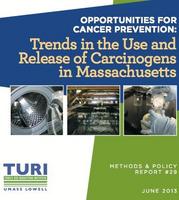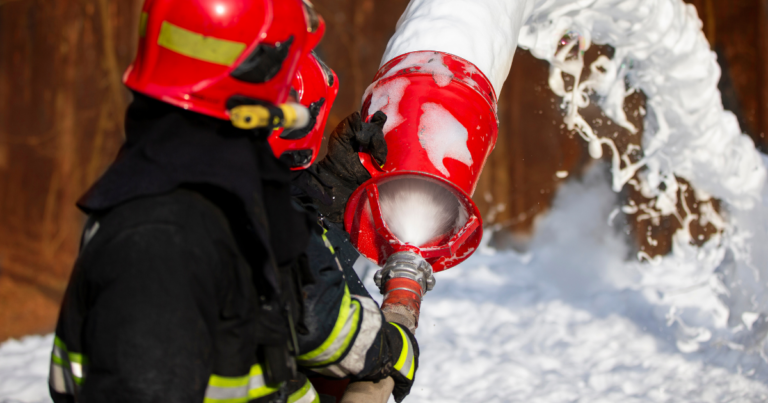A state success story
For many of us, cancer feels like it surrounds us – so many friends, family members, co-workers, and neighbors seem to be carrying this health burden in neighborhoods throughout our state, and throughout the nation. In Massachusetts, one hundred people on average are diagnosed with cancer every day. Since the mid 1980s cancer rates have risen 14% among men and 19% among women. The good news: due to a landmark law passed here in 1989, we’re making real progress in stemming this tide.
In 1989, Massachusetts passed the Toxic Use Reduction Act (TURA) to protect public health and the environment while helping industries maintain and improve their competitiveness. This law has been an undisputed success. According to a new report by the Toxic Use Reduction Institute (TURI), Trends in the Use and Release of Carcinogens in Massachusetts, by 2010 the use of carcinogens in Massachusetts facilities had declined by 32% and release had declined by 93%. According to the World Health Organization the most cost efficient way to fight cancer is through primary prevention strategies, such as toxics use reduction, so laws like TURA are key health protecting and cost saving measures.
TURA’s success is grounded in basic common sense and simplicity – it requires facilities with more than 10 full-time employees that use or release large amounts of chemicals to report annually to TURI as well as come up with a plan for further reduction of use and release of toxic chemicals.
Since the implementation of TURA there has been a huge decline in the use and release of the 74 known or suspected carcinogenic chemicals targeted by the program. For example, Perchloroethylene (PERC and Trichloroethylene (TCE), which are both carcinogenic chemicals used in dry-cleaning fabric and metal degreasing processes, decreased by 85% and 92% respectively.
The report examines trends in the use of chemicals associated with specific types of cancer. For the most part, the use of carcinogens linked to specific types of cancer has declined significantly over the last twenty years, but still remains large. The use of carcinogens associated with testicular cancer, for example, declined by 88% between 1990 and 2010. However, incidences of many cancers, including breast cancer, kidney cancer, leukemia, non-Hodgkin’s lymphoma and childhood cancers have increased.
The rise of cancer rates, despite the reported decline in the use and release of carcinogenic chemicals, demonstrates the complex nature of the disease and multitude of sources of exposure to carcinogens. There are many sources of exposure not covered by TURA, including a plethora of consumer products. The accumulation of many combined factors such as tobacco or alcohol use, poor nutrition, infectious disease agents and environmental or occupational exposure make it impossible to pinpoint the specific cause of cancer in most individuals.
TURA has influenced companies to find safer alternatives to toxic chemicals or alternative manufacturing processes simply by making companies examine their use. Although the act does not mandate facilities to change or limit their use of carcinogens, it has been very successful in doing just that.
As report author Molly Jacobs put it, “This is a reminder that state-level toxics use reduction programs can be a powerful force for occupational and environmental cancer prevention.”
Congress should not forget that fact as it considers the Chemical Safety Improvement Act (CSIA) over the coming weeks and months. As written, the CSIA would pre-empt many elements of the TURA program that make it such a success. Federal policy should aim to lift up programs like TURA rather than eliminate them.
With cancer rates as high as they are any step towards prevention should be protected and preserved. Let’s all join together in pressing Congress to get serious about cancer prevention and pass a smart bill that does more to protect our health and retains state authority to tailor policies like TURA to unique in-state needs.




